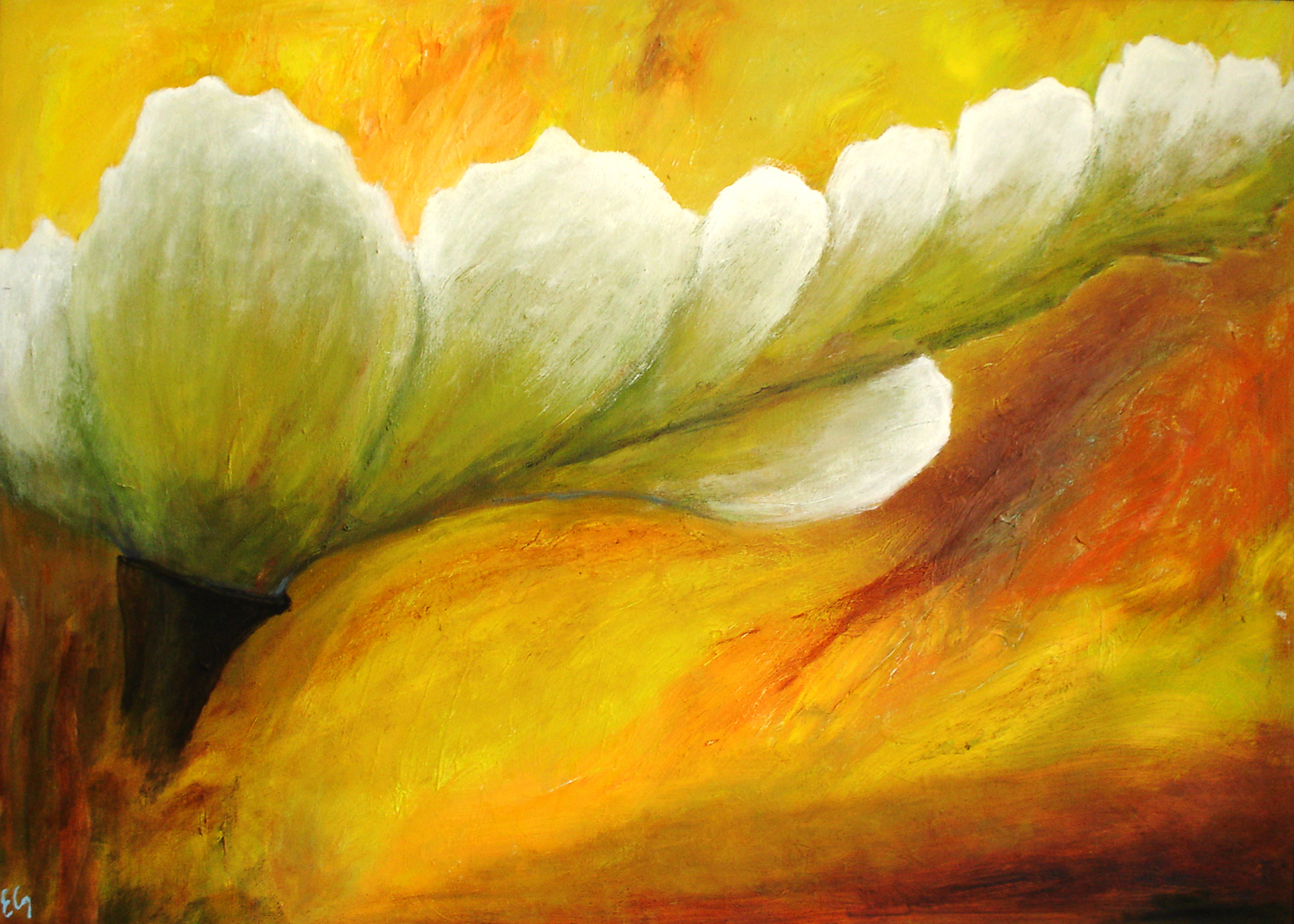Why do we read?
As a child, I read books because they moved me, and wrote stories to try and produce the same effect—primarily in myself; writing stories was a way of playing make-believe. There was no other reason, at least not initially. I did not care about what others were reading all that much, although my friends and I talked a lot about books, and I didn’t care if no one read the stories I was writing. It was not indifference—I simply enjoyed what I enjoyed. There seemed to be an innocence in that condition.
There’s a Greek word for this (of course there is): schole. It means leisure, but it’s also the basis for the word “school.” Literary leisure, the self-forgetfulness that comes in truly pleasurable reading, whether of fiction or nonfiction, and of other kinds of study and conversation, is what the twentieth-century philosopher Josef Pieper identified as “the basis of culture.”
For me, it didn’t last. The glitter of “culture” started to outshine its gold. As I grew older, I started to see the literary world as a place of competition: as not just good but good “for something.” Suddenly there were the “right” books to read, as well as the “wrong” ones, according to fashion and the academic circles I found myself in.
I no longer wanted to read, but I felt like I needed to read. As I pretended to be more intelligent and “literary” than I really was, my interest in reading and writing actually faded over time. I could feel it happening; I could feel the joy and unselfconsciousness bleeding away. I tried to fix it. I tried to reclaim the childhood orientation of wonder, delight, and creativity in my writing.
I failed.
Part of the call of the gospel is the command to “die to ourselves.” It doesn’t sound pleasant. But this matter of my lost schole, my lost leisure, shows why it is necessary to pleasure. The process of death to self, of “getting over myself,” just is the process of returning to a place of creative and receptive joy, of true schole.
Dying to self, in one’s writing as in one’s life, yields maturity but also grants one the permission to be a child again. Or more simply, when we admit our own childish selfishness and self-regard and lose the pretense of being better than we really are, we are free to return to the healthiest aspects of childhood, which are congruent with maturity. We can only be children if we first grow up.
Dying to self, in one’s writing as in one’s life, yields maturity but also grants one the permission to be a child again.
The paradox of childhood and maturity is biblical. Christ said that only those who approach him as a child can enter the kingdom of heaven (Matthew 18:3), while St. Paul exhorts believers in Jesus to stop behaving like children, unsteady and tossed around by novelty, and reach maturity, “full manhood,” in Christ (Ephesians 4:14). We are told to be wise as serpents but innocent as doves. We are commanded to stop drinking milk and move on to solid food, and yet believers are identified as “children of God,” adopted into a family by a loving Father (1 Peter 2:2; John 1:12). Boys are meant to turn into men, and girls are supposed to grow up into women. But does this imply that we are supposed to abandon the interests, joys, and pleasures that intoxicated us as children? If we enjoyed flying kites when we were seven, does that imply that we give up kite flying as thirty-year-olds? More apt for our purposes, do we stop reading faerie tales as adults because we are supposed to have “outgrown” them?
In Neil Gaiman’s The Ocean at the End of the Lane, we are presented with two ways of living in the world: as a child, open to wonder, pleased by simple foods and pleasures, or as an adult, closed off to wonder, pleased by little, and insistent on much. So much of what the novel seems to be asking is, What do people really want? Are the adults, in their pursuit of money, sex, and security, pursuing real pleasure? And how do children model another way? The novel is narrated by a nameless, middle-aged man who returns to his childhood home and reflects on his experiences there as a seven-year-old. The prose is simple, as the narrator observes the world around him and reports what he finds in a childlike way.
We discover early on that he loves to read. After a disappointing birthday party, the narrator retreats to his bedroom to read The Chronicles of Narnia. “I was sad that nobody had come to my party, but happy that I had a Batman figure, and there was a birthday present waiting to be read, a boxed set of the Narnia books, which I took upstairs. I lay on the bed and lost myself in the stories.” The narrator turns to children’s literature as an alternative to companionship, and “loses himself” in the stories. Losing oneself in a book is a means of escape for the narrator, but also his main source of joy and pleasure. Reading, for him, is akin to the artist losing himself in contemplating or creating a beautiful painting or an explorer marveling at the view from a finally reached high peak. It implies forgetting oneself and attending wholeheartedly to the object at hand: in this case, a faerie tale.
“I do not miss childhood,” says the narrator later, “but I miss the way I took pleasure in small things, even as greater things crumbled. I could not control the world I was in, could not walk away from things or people or moments that hurt, but I found joy in the things that made me happy.”
The boy loves Batman and Narnia. He loves the outdoors and pretending that it is a dangerous and wonderful kingdom. The “ocean at the end of the lane” is incidentally just a pond, which his companion, the mysterious girl Lettie Hempstock, carries around in a bucket at one point. (The novel is itself a faerie tale after all.)
There, the unfathomable magnitude of creation is kept within a tiny pond of water, much like the hazelnut in Julian of Norwich’s A Revelation of Divine Love. But only the children can comprehend it. The narrator trusts in Lettie as Julian trusts in Christ. “I believed in her, and that meant I would come to no harm while I was with her. I knew it in the way I knew that grass was green, that roses had sharp, woody thorns, that breakfast cereal was sweet.”
If childhood is this innocent wonder, Gaiman fantastically embodies adulthood in the form of a monster who appears as a beautiful woman, the nanny Ursula Monkton. When he sees her with his supernatural friend, the girl Lettie, the narrator is enabled to perceive Ursula’s true identity instantly. “I just looked at her, all grown-up and blonde, in her gray and pink skirt, and I was scared.” We soon discover that, although Lettie had “cast out the demon” earlier in the text, she has made her way back through a worm in the narrator’s foot, which must be extracted by Lettie’s miracle-working grandmother, Old Mrs. Hempstock. (This is a faerie tale, after all.) Because the narrator lets go of Lettie’s hand while confronting the unbound Ursula, the monster is once again able to infiltrate his world.
She is, it turns out, is in the business of giving people “what they want.” One of those things is money. And then, more potently, the narrator is introduced to sexual infidelity when he witnesses his father and Ursula sharing an intimate encounter while his mother is away at a charity drive. Gaiman ingeniously shows adulthood, with its secrecy, self-importance, and callousness, at its worst through Ursula’s character.
What is this monstrosity? Oh, it’s supernatural all right. (This is a faerie tale, after all.) But it’s also childhood narcissism that was never outgrown, but hardened, darkened, and embittered against the world, particularly against the innocence of children. (Some psychologists note that this is why criminals, or people with guilty consciences, find it so difficult to hold eye contact with other people, especially children. Archetypally, Cain experienced this kind of alienation from God after murdering his brother, Abel.)
And Ursula? “She was power incarnate, standing in the crackling air. She was the storm, she was the lightning, she was the adult world with all its power and all its secrets and all its foolish casual cruelty. She winked at me.” The worst kind of evil is found in people who are formally “nice” but have no interest in or feeling toward others; others don’t quite exist for them except as extensions of themselves. They have none of what C.S. Lewis called the “taste for the other.” They have all the right opinions, interests, political affiliations, and may appear deferential, as Ursula does. Perhaps they read all the right books. But they are lying about their real identities. They are those who have lost all delight except in their own carefully curated and powerful selves, in their own ambition and self-image. Again, this is made obvious in the novel precisely because the story is told from the perspective of a child, whose simple observations manage to profoundly analyze adult situations.
The worst kind of evil is found in people who are formally “nice” but have no interest in or feeling toward others; others don’t quite exist for them except as extensions of themselves.
Reading The Ocean at the End of the Lane, we see how there is indeed a paradox in the maturity of childhood and the immaturity in adulthood. If the process is rightly realized, we can mature in a way that retains what’s best about a childlike orientation. Children, as we know, are selfish from birth. They want their own way and are furious when they don’t get it. Parents urge them to “grow up,” meaning, to consider other people’s interests before their own, to do chores, and to collaborate with others in order to survive and adapt. And this is quite right.
However, children often exhibit a more basic trust in other people and are often more interested in the world around them without ulterior motive than adults are. They take delight. Adulthood, meanwhile, is often characterized by the narcissism that permeates young children, only hidden through sophistication, formality, and academic language, or by getting into what Lewis would call the “inner ring,” whether it be through intellect, fame, money, or sex. We see this in Ursula Monkton’s character. The problem with “childish adults” is that they paradoxically never matured in a way that let them see the world like children again. They demanded their own way and lost the fundamental joys of life in the process. They accepted the world’s terms of what it means to be an adult while maintaining everything inherently negative about childhood.
C.S. Lewis’s An Experiment in Criticism helps us frame this issue in terms of reading literature. We can read books and still have the openness of children, or we can read with a somber face, and have the closed-mindedness of someone who only “wants what he can get” (money or sex, as in Gaiman’s book, or power or fame) without an attitude of grateful receptivity. In this understanding, only adults who have tossed off their pretenses of intelligence and sophistication can be mature enough to read a book for what it is truly worth, thus “reading with childlike faith” but with the sound judgment and developed ear and rich set of intertextual references of someone who is no longer a mere child. This is Lewis’s argument in An Experiment in Criticism and is presented fictionally in Gaiman’s The Ocean at the End of the Lane. In fact, it is seamless how well these two works agree on this point. “I liked myths,” The Ocean’s narrator muses,
They weren’t adult stories and they weren’t children’s stories. They were better than that. They just were. Adult stories never made sense, and they were so slow to start. They made me feel like there were secrets, Masonic, mythic secrets, to adulthood. Why didn’t adults want to read about Narnia, about secret islands and smugglers and dangerous fairies?
Lewis might say that adults simply take themselves too seriously to take other things seriously: to enjoy fairies, castles, and trolls. He uses the phrase “literary Puritans” to describe this class of readers, writing, “The unhappy youth applies to literature all the scruples, the rigorism, the self-examination, the distrust of pleasure, which his forebears applied to spiritual life; and perhaps soon all the intolerance and self-righteousness.” In addition to putting on this serious persona, the literary pharisee is also, according to Lewis, the most juvenile when condemning the juvenile. (Again the paradox!) He writes, “Nothing is more characteristically juvenile than contempt for juvenility. The eight-year-old despises the six-year-old and rejoices to be getting such a big boy; the schoolboy is very determined not to be a child, and the freshman not to be a schoolboy.”
In Lewis’s That Hideous Strength, Mark Studdock, the hero, has spent the bulk of the novel trying to ingratiate himself with an “inner ring” of movers and shakers at the university where he works. Having failed, he finds himself in a prison cell. And for the first time, he allows himself to see what he is. He is one who has sacrificed schole to its counterfeit.
He looked back on his life not with shame, but with a kind of disgust at its dreariness. . . . He saw himself in his teens laboriously reading rubbishy grown-up novels and drinking beer when he really enjoyed John Buchan and stone ginger. The hours that he had spent learning the very slang of each new circle that attracted him, the perpetual assumption of interest in things he found dull and of knowledge he did not possess, the almost heroic sacrifice of nearly every person and thing he actually enjoyed, the miserable attempt to pretend that one could enjoy Grip, or the Progressive Element, or the N.I.C.E.—all this came over him with a kind of heart-break. When had he ever done what he wanted?
Studdock had lost the ability to lose himself in delight. His own self-regard had turned even what should have been leisure into work, even what should have been friendship into mutual exploitation, even what should have been pleasure into a dismal slog.
Lewis is not wooly-minded. He advocates the development of taste, as well as of adult strength, virtue, responsibility. “The sooner we cease to be as fickle, as boastful, as jealous, as cruel, as ignorant, and as easily frightened as most children are, the better,” he writes.
But who in his senses would not keep, if he could, the tireless curiosity, that intensity of the imagination, that facility of suspending disbelief, that unspoiled appetite, that readiness to wonder, to pity, and to admire? The process of growing up is to be valued for what we gain, not for what we lose.
Growing up does not mean we sacrifice our love for faerie tales and stone ginger to the demands of the fashionable. It means adding maturity and right judgment to the wonder and joy that is already there. Notice the parallels between this assertion and the narrator’s comment in Gaiman’s novel on the apparent “secrecy” of adulthood. The narrator, as a child, cannot understand why adults refuse to enjoy the things he finds inherently delightful.
In the end we are still left with the paradox, being commended by Scripture to adopt a childlike faith while ever striving to “put away childish things” and pursue full maturity in Christ. As with so many things, this paradox is not an either/or dilemma, but a both/and mystery, which we can hold in tension and by which we can be continually encouraged and challenged. Being open and attentive to what the text before us has to say, as Lewis commends, can be a great aid in our spiritual pilgrimage. If the work—the treatise, the novel, the poem, the faerie tale—is worthy of our time and attention, we might even be transformed by the reading. But that transformation will begin in delight: the delight of true leisure.





